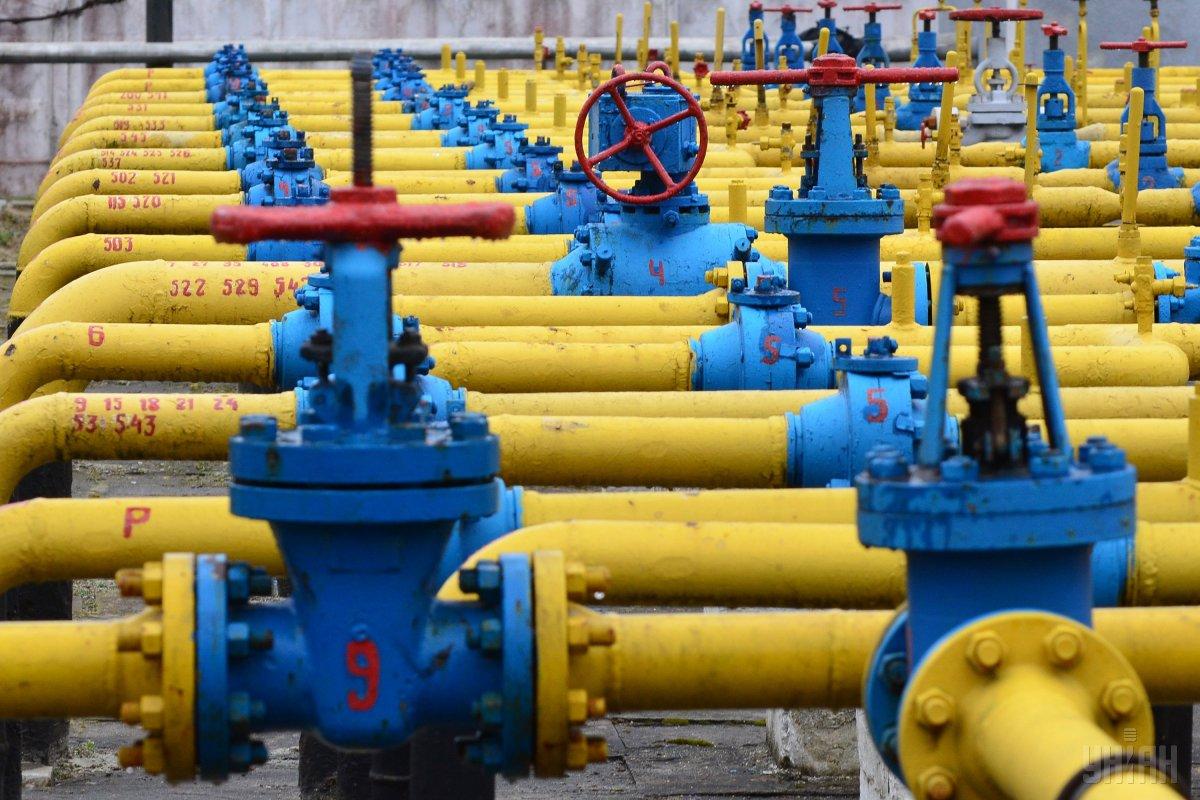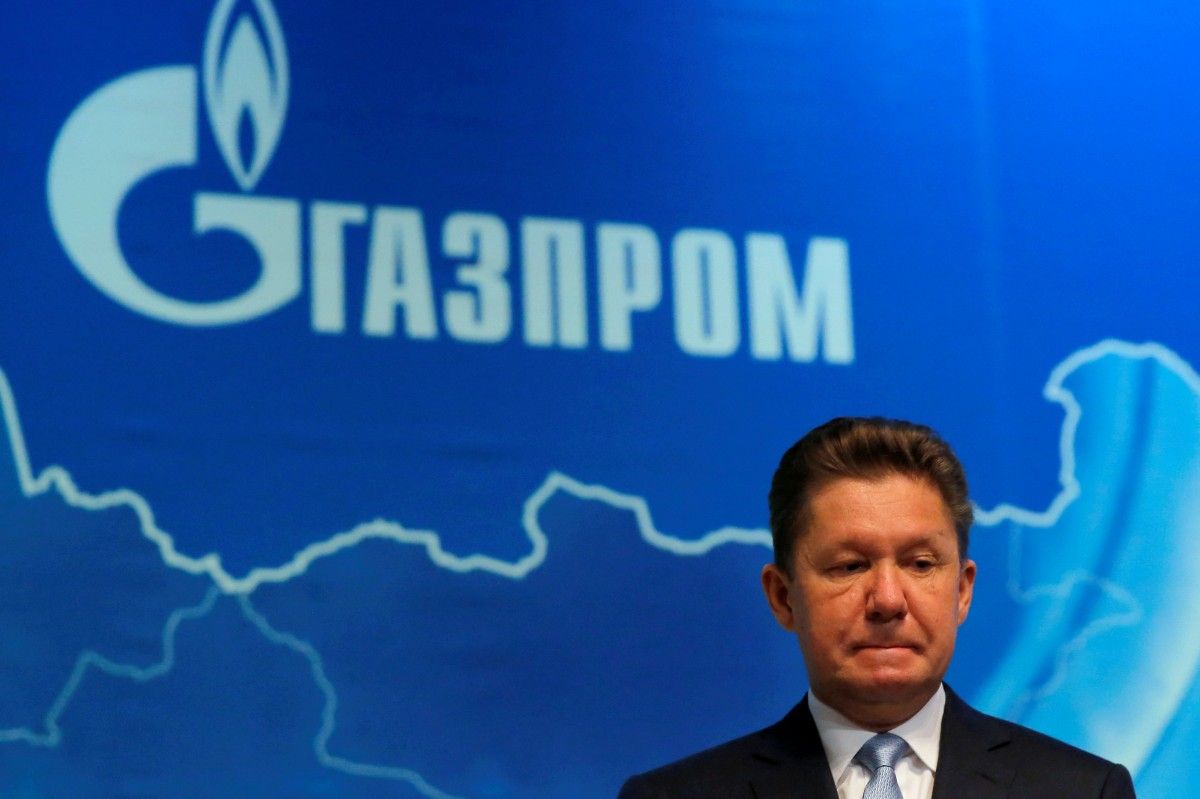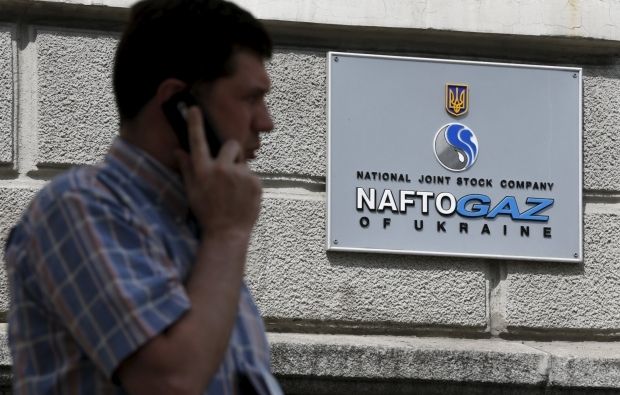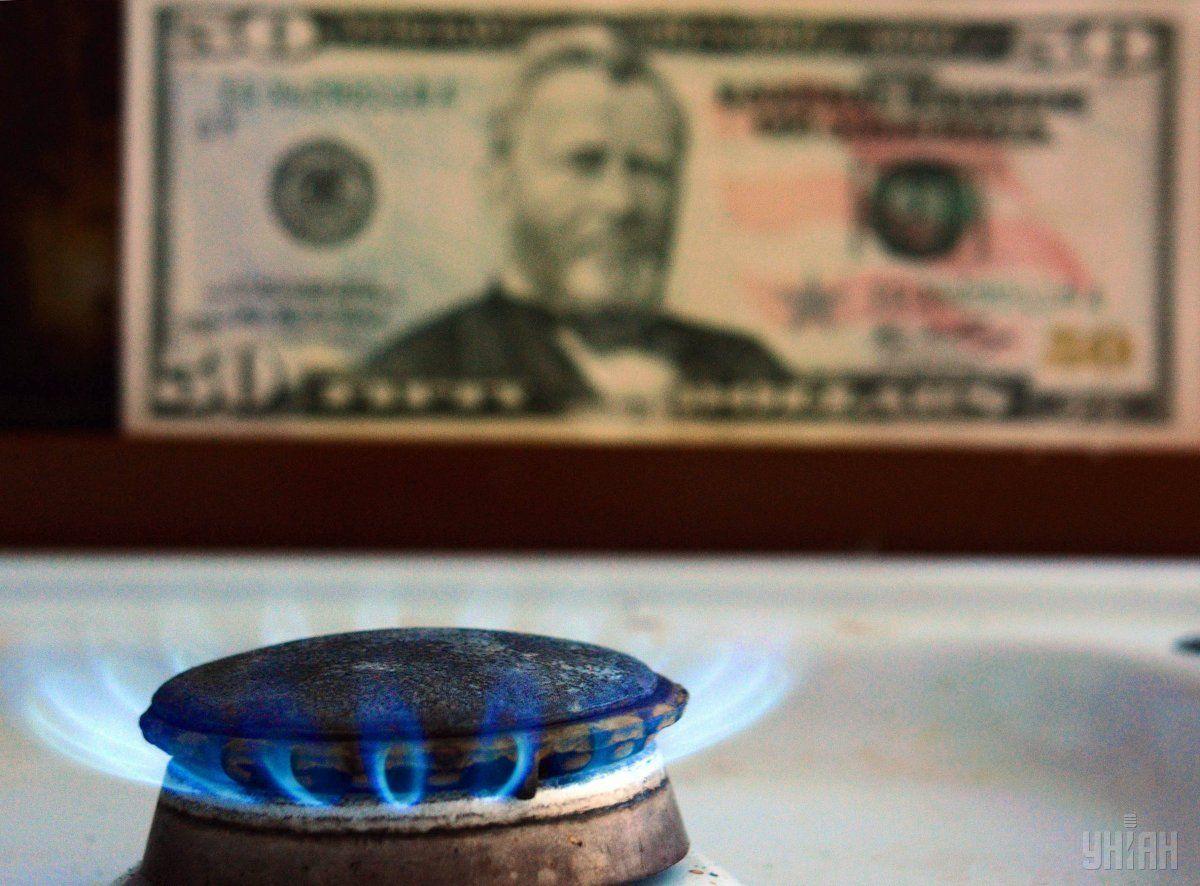
How conflict between Cabinet and Naftogaz helps Russia tighten gas noose on Ukraine's neck
A long-lasting conflict between Volodymyr Groysman's government and Naftogaz has moved to a new stage of aggravation. Now it is spinning against the Cabinet's decision on Naftogaz restructuring. The spat is being fueled by the lack of funds for pumping gas into underground storage facilities in excess of the usual volume, which is necessary to remove the risk of Russia's halting gas transit via Ukraine from January 1, 2020.
The confrontation between Groysman's government and Naftogaz keeps getting stronger. The crisis in their relations, which has been simmering for years, has now escalated against the background of Naftogaz unbundling – separation from its structure of an independent gas transmission system operator. This must be done in accordance with the gas market law that came into force in 2015, which was adopted for the implementation of European energy regulations, in line with the Ukraine-EU Association Agreement.
Following this commitment, in 2016, the Cabinet of Ministers adopted a resolution on Naftogaz restructuring. The dispute over the government-proposed scheme of separation of Naftogaz functions has been lasting ever since. And suddenly, on June 5, the Cabinet of Ministers adopted another resolution, which completely corrected previous government decisions, and obliged the company to "approve within ten days and submit to the Cabinet of Ministers a detailed plan of measures to implement the tasks within the authority provided."
Naftogaz considers the new plan for its reform to be inconsistent with European principles. According to Naftogaz CEO Andriy Kobolyev, it is this argument that will be used as the main pretext for Gazprom not to sign a new gas contract. The government proposed unbundling will be a real "gift" for Russia.
"If, when introducing an independent GTS operator of Ukraine, we apply the wrong model, which will not fully comply with European law, Russians will definitely take advantage of this," Kobolyev wrote on Facebook.
"They understand perfectly well that such an archaic legal model doesn't meet the requirements of European energy legislation, and they will be able to explain this very easily using the principle of 'content is more important than form.' This is about a Cabinet decree setting the direction for unbundling, which Russians closely follow," he explained.
Kobolyev urged the government and all parties involved to carefully weigh decisions regarding unbundling, since even a single wrong step could lead to multi-billion monetary and invaluable reputational losses for Ukraine.
Sauron's eye watching
Kobolyev wasn't wrong. Russia immediately responded to the Cabinet's move. Russian Energy Minister Alexander Novak during negotiations with Vice-President of the European Commission on the Energy Union Maros Sefcovic, where future talks on the fate of Russian gas transit via Ukraine were discussed, said: "We are ready to ensure gas supplies to Ukraine, to restore supplies that were discontinued in 2015... Gazprom could provide lower prices for Ukrainian consumers, 25% down from the current level... Russia takes a constructive position here, ready to go continue gas transit via Ukraine and to ensure supply to European consumers. We are ready for the extension of the contract under the existing conditions. Ukraine is not yet ready, in terms of changes to existing legislation, to ensure the conclusion of a contract on the terms that are used in Europe. In fact, the simplest option is to extend the existing contract that was offered to the Ukrainian side."
Novak described the conditions under which the gas transportation system of Ukraine can be utilized: "If there is a constructive approach, acceptable, economically competitive tariffs will be offered, if relations are settled – litigation in arbitration courts – then, in principle, the transmission system can be used. But we know that so far there have been no proposals from our Ukrainian counterparts."
Thus, Russia is already seeing a discrepancy with the European principles in the Cabinet's scheme of Naftogaz restructuring – and these discrepancies play into Moscow's hands.
Incidentally, Naftogaz has already called the discount offered by Gazprom "sophisticated", and also said that the company believes any settlement in the Stockholm case is off the table. As a fallback, in case Gazprom halts transit via Ukraine from 2020, Naftogaz suggests concluding a swap contract.

"Gazprom will be giving us a certain amount of gas (a certain energy value of gas) at the Ukraine-Russian border, and we will give exactly the same amount (energy value) at the Ukraine-EU border. Gas transmission will be confirmed by neighboring operators of Slovakia, Hungary, Poland, and Romania, that is, they will take responsibility before Gazprom for the gas already in their systems," explained Naftogaz CCO Yuriy Vitrenko.
But the government did not like this proposal either. Minister of Energy and Coal Industry Ihor Nasalik said that, in order to sign a contract with Gazprom on swap terms, Naftogaz must receive the relevant directives. "Any contracts, if they are being concluded at the international level, should receive directives to the negotiation process at the level of the Cabinet of Ministers of Ukraine. I did not see that at the Cabinet of Ministers of Ukraine NJSC Naftogaz of Ukraine gave appropriate directives," he said, adding that Naftogaz "has already become toxic in negotiations with almost everyone."
And then he recalled the unbundling issue: "I'd like to emphasize that Naftogaz requires European rules for the transmission of Russian gas, and at the same time it does not have a separated operator for this to happen."
Lack of money
The scandal is being fueled by another issue – the lack of funds for the purchase of gas in volumes larger than the norm, to reduce the risk of a possible transit halt. In order to adequately survive the winter, Naftogaz expects to pump 20 billion cubic meters of gas into underground storage facilities – it's 3 bcm more than usual. The problem is whether Naftogaz has enough money to buy this fuel. Andriy Kobolyev has already stated that the lack of working capital may prevent continued accumulation of gas in the USFs. Among the factors that provoke a shortage of funds, he called the debt for gas from gas sales companies and heat producers in the amount of more than UAH 60 billion, which is double the need to properly prepare for the winter. And it was at such a moment that the Cabinet of Ministers ordered Naftogaz to send 90% of its profits to the state budget.
One of the ways out of the situation Naftogaz considers restructuring the payment of dividends and attracting credit funds, for which permission and active participation of the Cabinet of Ministers as the sole shareholder of Naftogaz is also required. But so far no decisions have been taken by the Cabinet.
Deputy Prime Minister Volodymyr Kistion during a Q&A in the Rada addressed the issue. He believes that the "creative" management of Naftogaz, which since 2016 has increased the costs of maintaining the company's office ten-fold, must bear responsibility for the shortage of funds for the purchase of gas for the passage of the heating season, in case of termination of Russian gas transit via Ukraine.

"The company is profitable, so where is the money? If you at least look at how much financial resources are being spent on the maintenance of the office, since 2016 these costs have increased ten-fold. While it used to be UAH 800 million, now it's more than UAH 3.5 billion spent on the management in the form of wages," he said. "If we analyze the effectiveness of the use of financial resources at Naftogaz and the question that is being raised today about the lack of financial resources for the purchase of gas in the period of the lowest price, I think this is a question, first of all, to the creative management of Naftogaz who have been in charge of the company for more than five years," the deputy prime minister stressed.
In unison with Kistion, Minister of Energy Igor Nasalik said: "Naftogaz is a rather strange organization, which fails to provide us, a profile ministry, information on gas supplies and other economic activities."
While parties to the conflict are fighting, the question of whether Ukraine will have gas gas this winter is becoming increasingly relevant. Also, this new problem, unbundling, could completely disrupt the future transit contract.
What's next?
Director of the Center for Energy Research, Oleksandr Kharchenko, believes that the decision of the Cabinet of Ministers regarding unbundling does not meet European standards and plays into the hands of the Kremlin. "It seems that the ministers want to create some kind of basis so that someone can be imprisoned for violating the procedures for adopting certain regulatory acts, based on the principle of creating an electricity market. The Cabinet of Ministers adopted a resolution on Naftogaz unbundling according to a scheme that they themselves invented. It will not give a single chance for any foreign concessionaire to manage the GTS, which will rule out the emergence of an international partner. At the same time, if this scheme is attempted to be implemented, it will lead to the fact that on January 1, 2020, it will turn out that there is no one to sign a transit agreement – of which Gazprom has immediately spoken about happily: dear Ukrainians, you tell us a lot about the European rules of future transit, but in fact, you have none. The decree of 2016 has been changed beyond recognition. What happened in the end doesn't hold water. Now Naftogaz manages the GTS based on the fact that Ukrtransgaz (owned by Naftogaz) has it in commercial use. But in the end of the day, the owner is the state. And the government is now trying to preserve this old Soviet shape, which no civilized country uses anymore. The Cabinet of Ministers wants, within the framework of this commercial use, to transfer the pipe to another owner – MSU company, subordinated to the ministry, stating at the same time that unbundling is being conducted," the expert emphasized.
According to him, any foreign investor is well aware that the Cabinet of Ministers could take away the GTS at any moment, just as it gave it for commercial use. Naftogaz proposed another variation – to adopt changes to the law on concession, to allow it in relation to the GTS, and, within the framework of a transparent and acceptable process for any foreign investor, to implement it.
"The issue of transferring the GTS into ownership is not yet clear, and it is unlikely that even the new parliament will agree to this – too much talk has been going on for too long about the fact that the GTS is a national treasure, although, it is hard to explain, why exactly it is. If today we follow the path proposed by the government, no foreign investor will come. That is, such unbundling will not bring us anything positive. The effect will be when foreign partners come to us and defend their interests in the form of gas transit through Ukraine," said Kharchenko.
He also stressed that another issue today is the fact that the government adopted a "magic" resolution, which obliged Naftogaz to transfer 90% of its profits to the budget. According to him, it is unacceptable to make such decisions at the time when, on the one hand, the regional gas companies owe Naftogaz more than UAH 60 billion and, on the other hand, it is necessary to pump into USFs 3 bcm of gas over the usual volume to compensate for the possible termination of transit from January 1, 2020.
"And this is becoming so 'possible' that Gazprom is already speaking of it publicly. That is, in essence, the government deprived Naftogaz of financial resources. But when Naftogaz offered to issue eurobonds to receive funds for the purchase of gas, the government did not give permission. Moreover, the financial plan of Naftogaz hasn't been approved by the government either. The Cabinet of Ministers went further to saying something out of the ordinary: let the next government do it. Naftogaz has enough money for the purchase of gas until July 12, but to create the necessary reserves, gas must be pumped non-stop until the end of October. Representatives of the U.S. and the EU, as well as international financial organizations, say that they are ready to help Naftogaz with money, but the government must give formal permission to receive it. And there is no such permission," said the expert.
In his opinion, a change in the composition of the government can be a way out of this impasse: "I sincerely hope that the new government will hold someone from the current composition of the Cabinet of Ministers accountable for the actions that they are now doing. The presidential administration and the National Security Council hear and understand what the problem is. It's just that they don't have any mechanisms for influencing the government to change the situation with quick actions."
Mykhailo Honchar, President of the Center for Globalization Strategy XXI, believes that Russia's position on government actions regarding the restructuring of Naftogaz is quite expected and logical. "The Kremlin will look for any possibility to make sure there is no transit contract. As for the actions of the government, they are not surprising – the Cabinet of Ministers is already in the election campaign. I think that decisions are being promoted through it, which are actually made in the interests of Gazprom. The more chaos, the more incomprehensible decisions, the more Gazprom will have opportunities to point out the inadequacy of the Ukrainian side as a whole. What was the argument of Gazprom in Stockholm when long-running hearings were underway on contractual claims? - Ukraine is hardly a state in the European sense. It is a kind of agglomerate of oligarchic interests, non-professionals in terms of managing the industry. Therefore, allegedly, it was very difficult for the Kremlin to manage the situation, so the relevant contracts were signed, since it was impossible to act otherwise with this 'uncivilized community.' Now Russians receive a pre-ordered picture thanks to the short-sightedness of our officials, whose coordinate system has now shifted," the expert said.

In his opinion, until September, after the parliamentary elections and certainty with the new government, when new talks in the trilateral Ukraine-EU-Russia format will be appointed on a transit contract – nothing will change. "Gazprom is now shaping with the hands of our 'politicians' - Boyko and Medvedchuk - a new scheme. For a beautiful picture, they say one thing on cameras, but do totally different things off the air. Everything is being done to put Ukraine in a dilemma closer to winter – there is an unconstructive Naftogaz with management rested on European principles, and we are trying to agree with it at least somehow. But at the same time there are constructive forces, Medvedchuk and Boyko, who, by that time, will have a different status. At least, they will make it to parliament. Thanks to this, a new super-scheme will be created, which will provide not only transit, but also gas supplies to Ukraine at 'reduced' prices, taking into account the notorious 25% discount. This is the principle that was implemented by the Kremlin during the first energy crisis in 2005–2006. Then the scandalous RosUkrEnergo was created, and now the situation will be very similar. The conditions will be the following from the Kremlin – either Naftogaz agrees to all offers, that is, it prolongs the contract with the settlement in Stockholm, otherwise we don't have do any business and we will have a new partner – like RosUkrEnergo-2 – and sign a contract with it. Here is a challenge to the new government and the president. In this case, the argument will be voiced – Ukraine is struggling with a monopoly, which is Naftogaz. And if in this situation Kyiv acts too brazen, everything will be done to spark another energy crisis. The Kremlin believes that it will achieve its goal. And in the conditions of managerial chaos that Ukraine is experiencing now, any decision can be pushed through," Honchar commented on the situation.
People’s Deputy Olha Belkova believes that the government and Naftogaz should clarify their relations behind the scenes, not publicly, since the questions raised "to the surface" concern the strategic sphere of the country's interests. "Today the government and Naftogaz have different visions regarding unbundling. And they have that right. Each side has a number of compelling factors. Ukraine, in addition to its obligations transformed into a law on the gas market, also has interests in the Stockholm arbitration, and all these risks must be weighed. And most importantly, there's preparation for the heating season. Regardless of who plans what, it is important that the gas reserves in the storage facilities allow for the successful passage. Especially, given the likely negative actions on the part of Gazprom. I believe that the issue of allocating funds for the purchase of fuel should be discussed exclusively in working order, not publicly, since this is a strategic issue. Calling each other to a duel, blaming each other should not be happening. I call for constructive moves, moreover, in closed working sessions. And if someone is to blame that there is no money for the purchase of gas, or it has gone somewhere, don't make loud statements – apply relevant authorities," the parliamentarian noted.
Member of the Supervisory Board of Ukroboronprom, former Minister of Economic Development Aivaras Abromavicius emphasizes that the Russian side is already exploiting contradictions between the government and Naftogaz in unbundling as a reason not to start gas negotiations at all, as well as increasing gas reserves in European storage facilities. This suggests that the transit negotiations will be long and complicated. "We have to prepare for this and buy gas as much as possible at an attractive price, which it is at the moment. The government should help Naftogaz in attracting financial resources for this crucial purchase. And both parties, with the help of our international partners, should find an acceptable option for unbundling," said Abromavicius.
The conflict between the government and Naftogaz went too far. And the Kremlin has already begun to take advantage of this. Ukraine's senior officials have chosen the worst time to fight each other: at stake is the transit status of our country, as well as the risk of having no heat in Ukrainian homes this winter. If the Cabinet of Ministers and Naftogaz cannot find common language, it's probably time for the president's team to deal with the situation.
Nana Chornaya

